Regardless of your politics, I don’t think anyone would argue with the fact that humans have done a ton of damage to the planet. Did you know the fashion industry as a whole is the second largest polluter in the world, after oil?
My eyes are wide open these days, but if you asked me 10 years ago what I thought about ethical fashion, I probably would have shrugged and told you it was too expensive, not stylish enough, and just not for me. Well, I’ve changed. I’ve become curious about ethical fashion and have found brands that are in line with my budget and style. Let’s talk about sustainable fashion and why it matters.
What is sustainable fashion
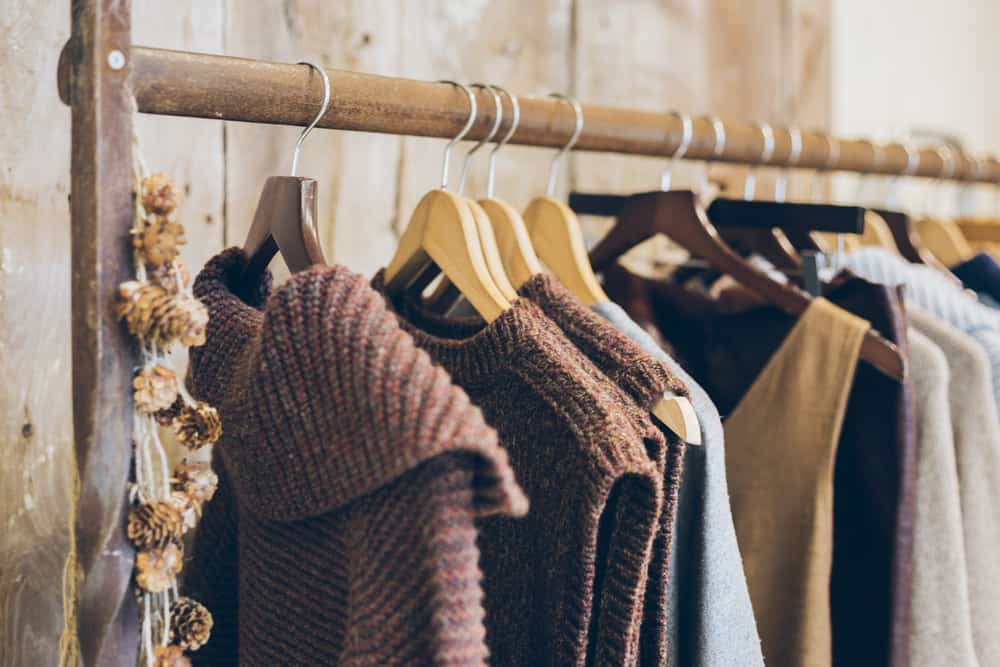
Photo credit: Shutterstock.com / Roxana Jifcovici
Sustainable fashion…. ethical fashion… slow fashion…. eco-friendly fashion…. these terms have become so trendy over the past couple of years and they’ve caught my eye. Little by little, I’ve researched what all of this means and what brands fall into these categories. As a result, I’ve become more conscious of my spending and I think it’s a worthwhile topic to write about, so here we are.
Let’s start with the main question: What is sustainable fashion?
It’s a complicated answer, as the fashion industry is constantly evolving. If you do a Google search for “what is sustainable fashion,” you’ll get all kinds of different answers depending on who you ask.
At its core, “sustainable fashion refers to garments that have been made in a way that is mindful of the many environmental issues the fashion industry touches upon,” writes Study34.
You can read more about what sustainable fashion is here and here. For those of you who really want to go nuts, read this 65-page Environmental Impact of the Global Apparel and Footwear Industries Study from last year.
Next, we need to talk about fast fashion. The opposite of sustainable or slow fashion is fast fashion. You know, popular stores like SHEIN and Forever 21 that mass produce clothing at rock bottom prices and always have new inventory. The goal of fast fashion is to make as much as possible as quickly as possible.
The focus is on money, not environmentally friendly practices, quality, or the ethical treatment of workers. Until watching The True Cost on Netflix, I didn’t really get it, and to be honest, didn’t care much.
But now I sure do, and I’m making some personal changes.
Before we get into it, let me be the first to say I’m not a fashion expert. I’m also not an expert on sustainable living. But I am someone who has taken an interest in sustainable living and companies who prioritize the environment and people over profit.
Over the past couple of years, I’ve tried to incorporate more pieces into my wardrobe when I was able to do so. A $15 Everlane t-shirt is what started my collection.
French ethical fashion brands you’ll love >>
As I’ve gotten older and learned more about manufacturing practices of brands I’ve grown up with, I’ve made a shift in how I buy clothing and the brands I support. No, I don’t have a crazy high clothes budget. I wrote all about how I afford sustainable fashion here.
But instead of buying a bunch of things I don’t really need and will rarely wear just because they’re on sale, maybe I’ll spend the same clothing budget on just a handful of ethically made, versatile items that I actually need and will wear over and over again.
A few months back, I committed to buying only from ethical, sustainable brands. Or only buying clothes second-hand. Does that mean I’ll never shop at a mall ever again? I’d like to say no, but in all honesty, I know I will. And that’s OK.
The first step toward changing behavior is becoming aware and then setting the intention of making a change. So this is me committing to making a change. All we can do is try to be aware, educate ourselves, and make choices that align with our values.
Now, to get one thing straight, I don’t think I’m going to singlehandedly save the planet with better shopping habits. But I do think I can minimize my impact on the environment in little ways that fit my lifestyle and budget. The little things add up over time.
I’m talking about using reusable shopping bags, a stainless steel water bottle for travel and the gym, walking places instead of taking the car. There are hundreds of examples and I feel I need to do my part. I wrote more about how France has made it easier to live more sustainably here.
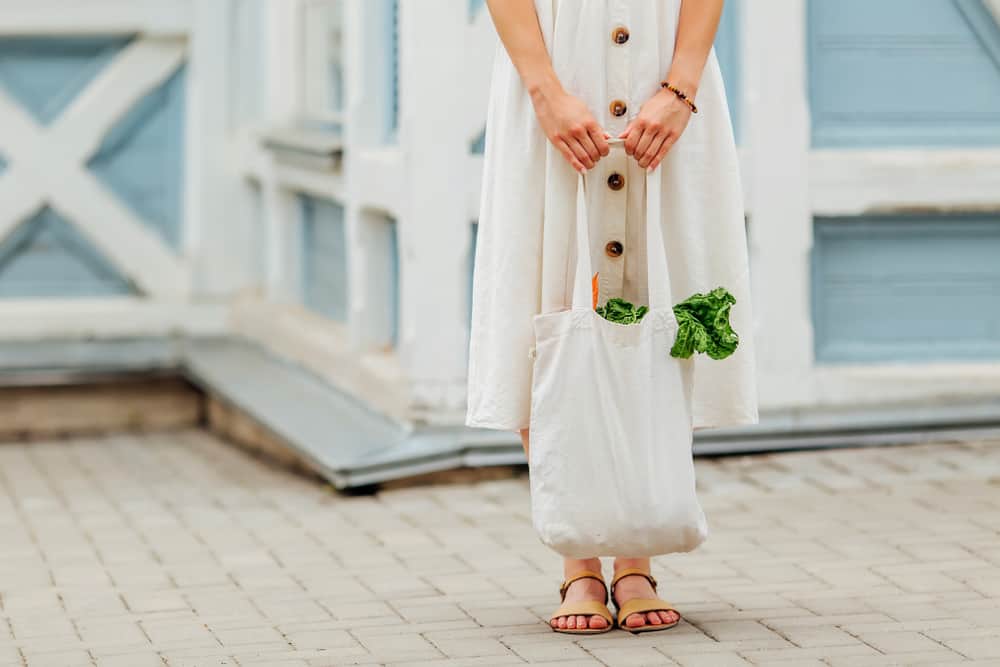
Photo credit: Shutterstock.com / Igisheva Maria
But at the same time, I feel conflicted. I travel by plane. I eat meat. I have a car. I take baths from time to time. I use a clothes dryer. You get the point.
I’m not here to shame anyone else’s choices or tell you what you should be doing. I see the contradiction and my choices aren’t better than yours.
I’m just sharing something that’s become increasingly important to me and maybe it’s something you care about, too. Being a conscious consumer in our own way is something we can do to better the planet and the people who live on it.
Something I always remind myself of is that it’s not all or nothing. Doing environmentally-friendly things most of the time is better than not trying at all because we don’t think it matters in the grand scheme of things.
Looking at it in such black and white terms leaves me feeling either overwhelmed or defeated. Neither one is good. I go from feeling like my little positive changes won’t impact anything on their own. And then feeling like so much damage is already done, the hell with trying because I’ll be long gone before the planet dies.
Back in the day, I’d probably tell you that my little actions can’t change the world so why bother. Yah, my attitude was different then and I’ve come a long way toward how I approach the way I live, where I spend my money, and what and who I support.
We can make the world a better place by making better choices as humans. We at least have to try.
The truth is that corporations control so much and the individual can be left to feel powerless in a world where our personal efforts often go unnoticed in the short term. But taking these small personal steps including buying clothes secondhand and only from ethical brands helps me to take back control.
P.S. Speaking of slow fashion brands, for high-quality shoes, check out Nisolo. They won’t steer you wrong and their Chelsea boots have become a fast favorite in my closet.
Anyway, where we spend our money matters and I no longer want to actively support such a dirty industry by engaging in fast fashion.
Maybe the most important aspect of all this for me is that when I support brands who I feel are doing good in the world, it makes me happy. And when I feel happy, I’m more confident and it carries over to how I present myself and interact with the world.
One other thing, an important one. I’d be majorly lacking in the self-awareness department if I didn’t acknowledge the privilege of being able to buy eco-friendly, ethically made, and sustainable fashion. I live in a country where I have choices, where I’m able to earn a living, and where I can access information freely and easily.
Is ethical fashion affordable? Not always and I’m far from being rich. But we can still incorporate pieces into our budget and closets, especially if we only buy what we need. We can limit our consumption.
I have friends and relatives who love to shop and when I’ve spoken about ethical fashion brands, they’ve said they’re too expensive. Yes, fair labor practices and environmentally conscious manufacturing processes do tend to be more expensive, but remember, someone always ends up paying.
Maybe start with an t-shirt like I did and see where it takes you… When I started researching “what is sustainable fashion,” I waited 4 years to buy my first piece from Encircled and do not have a ton of disposable income for clothes. I just made this a priority and cut back elsewhere.

Photo credit: Shutterstock.com / Daxiao Productions
Again, I’m not here to tell you how to shop and where to spend your money. You need to decide that for yourself. But I am someone who has become more conscious of how she spends her money and maybe you can learn from things I’ve learned. I’m curious. I want to have this conversation and I want to explore.
Everyone has different goals and interests, and quite frankly I’m ecstatic when I find out my readers care about this stuff too and figuring out what is sustainable fashion for themselves.
This conversation is not just about fashion and shouldn’t be just about fashion. Many of us support environmental initiatives in our own way. We go green by no longer buying plastic water bottles, getting our coffee in disposable cups, using plastic straws, etc. We buy electric cars. We recycle. We upgrade to triple pane windows. We shop responsibly.
Anyway, I plan to revisit this topic of living sustainably and talk more about the slow fashion brands below, but for now, here’s a quick roundup of my favorite sustainable fashion brands.
Ethical clothing brands online:
Everlane
Everlane is the brand that kicked off my interest in sustainable fashion. With t-shirts starting at $18, they’re an affordable choice to start your closet off on a more ethical foot this season.
Since their founding in 2010, the brand that prides itself on ethical factories and radical transparency has branched out to a full women and men’s line of sweaters, outerwear, shoes, accessories, and more.
This organic Danish brand’s underwear caught my eye and I’ve since discovered that their workout pieces are must-haves. Everything is made ethically from high-quality materials, and the SilverTech line is stink proof and encourages more wears and fewer washes. So far so good… my sports bra and muscle tank have made me a believer. Get 10% off by using code OUIOBC at checkout.
Pact
This is a US-based organic and fair trade brand that’s one of the more affordable ones on my list. Their return policy is fab too. Pact has everything from cotton undergarments, to sweaters, dresses, loungewear and more. Shop Pact here.
Encircled
This Canadian brand’s Chrysalis Cardi was on my wishlist for years before finally pulling the plug over the summer. I love versatile, well-made garments and a full review of this unique piece above is coming soon. Shop Encircled here.
Nisolo
I can’t get enough of Nisolo’s high-quality leather shoes and they’re a leader in the sustainable footwear space for a reason. Their website explains, “Every Nisolo purchase ensures a living wage to 100% of the people creating products in our factory and enables us to pursue living wages throughout the rest of our supply chain.”
Feel good about buying from Nisolo. My pick goes to the Everyday Chelsea boots, which are GORGEOUS. They also now offer shipping to the UK and Canada as well as the US.
PrAna
Sustainable clothing brand PrAna was the only brand I wore in the humid temps this summer in Haiti and Africa. They have winter wear as well, as you can see above. I originally fell in love with PrAna because of their ethics, but their high quality linen tops and pants have me sticking around.
Poshmark
Poshmark is an online second-hand clothing selling platform, not a brand of clothing, but I created an account last year and have been pleasantly surprised with the deals I’ve snagged. Think of it as high-end eBay where you can buy and sell with ease all via an app. You’ll find a great selection of brands all on a very user-friendly platform. I used Poshmark to sell my Rothy’s after starting out in the wrong size and it was smooth sailing. Get $10 toward your first purchase with code OUIINFRANCE.
***
Have you shifted the way you shop over the years? Is sustainable fashion something that’s caught your eye? Do you care about why sustainable fashion is important?
Talk to me about shopping for organic clothing, being a conscious consumer, and shifts that you’ve made in your life…
Disclosure: This post contains affiliate links and I will be compensated if you make a purchase after clicking on my links, or #ad, #sponsored or #paid for any social media content.
Pin this sustainable fashion post:
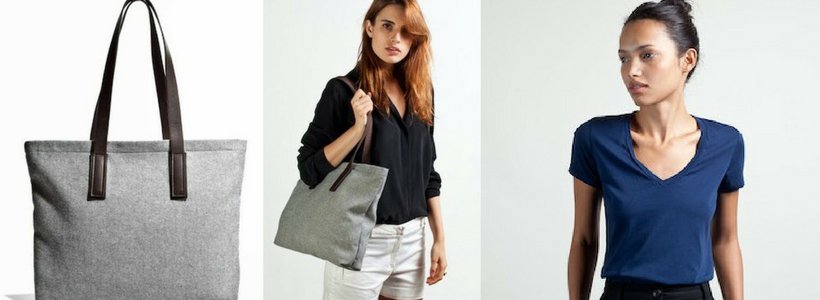
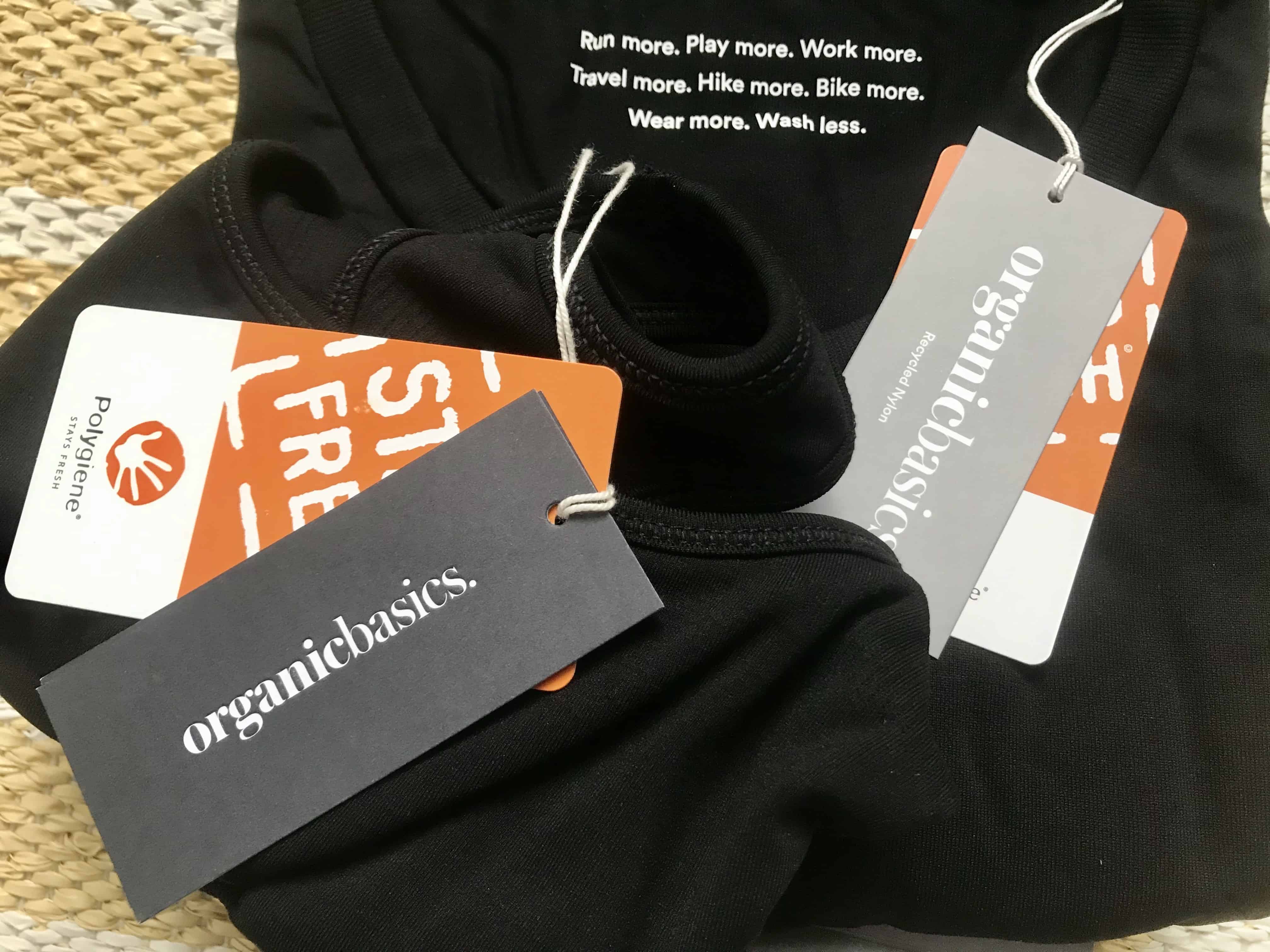
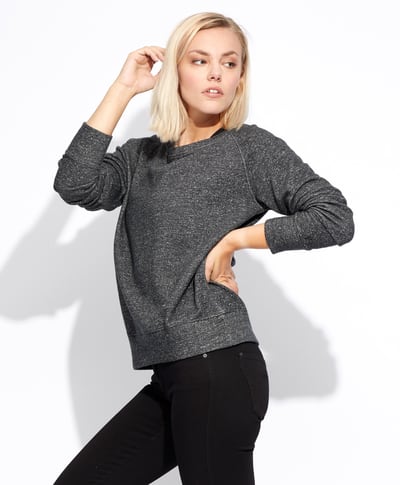
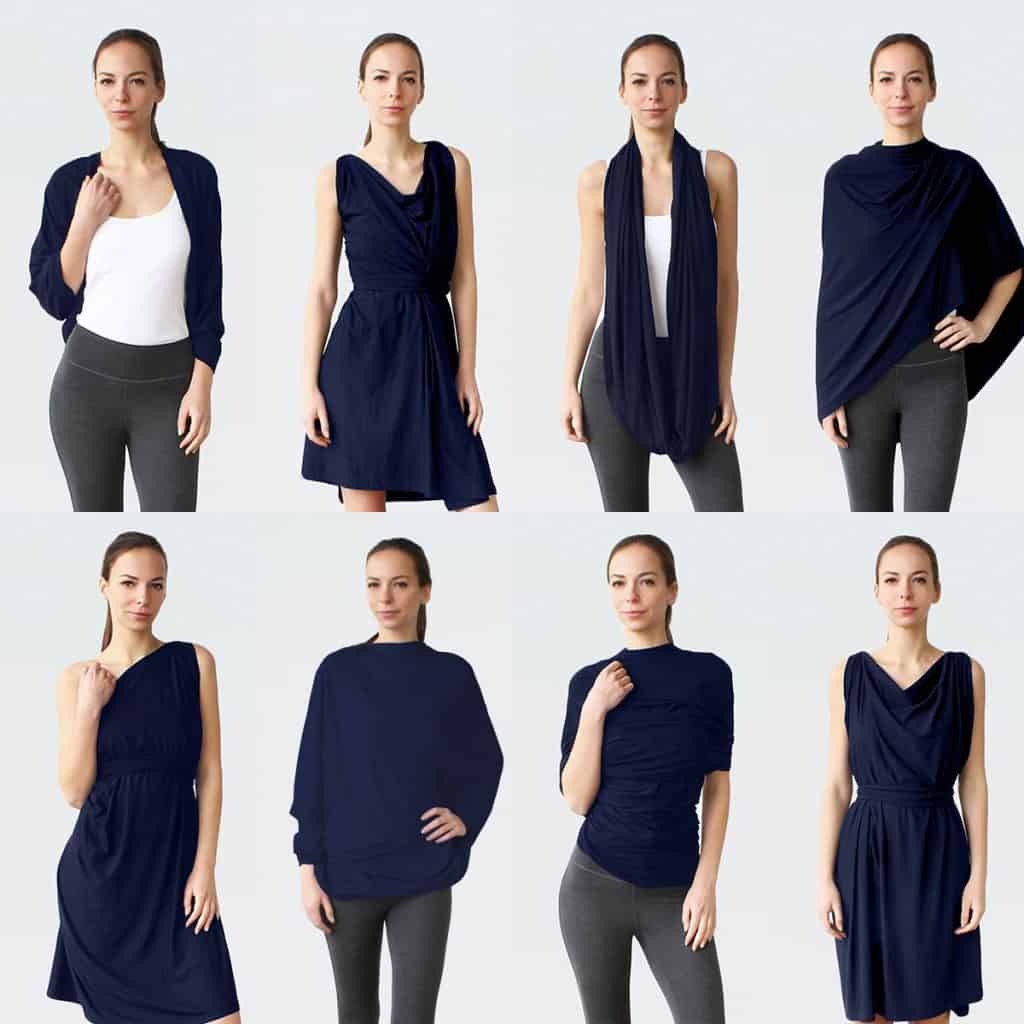



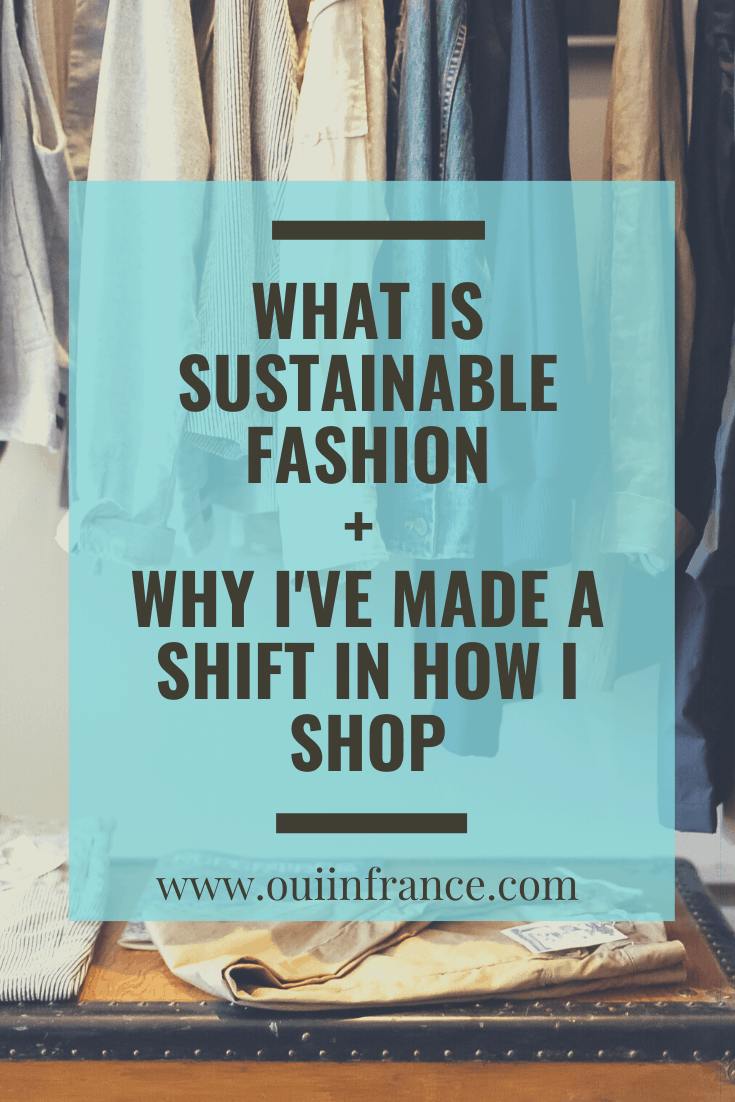

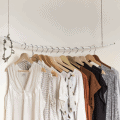



I like this post. I think sometimes it can seem overwhelming to move towards sustainable living but we all have the power to.make changes. I started out like you with one ethically made garment about 10 years ago and I still wear that blouse . It was in the sale for €10 haven’t looked back. All my clothes are ethically made or pre-owned. I don’t buy much now. I shop my wardrobe
It’s all about balance and not beating yourself up. I still make car journeys but I plant a lot of trees to offset this. Look forward to more on your sustainable journey. You might want to check out a British brand http://www.peopletree.co.uk
Yes, SO overwhelming! I love that you still have a blouse from 10 years ago and lean toward ethical brands or pre-owned stuff as well. Thanks for reminding me about People Tree. I know of them but don’t own any pieces. Thx for reading. 😉
I hadn’t heard of this type of fashion so found this really interesting
Thanks so much for reading, Jo-Anne! You’ll have to let me know if there are any good Aussie brands that do sustainable fashion. 😉
Thanks Diane!
Great post! My sib buys clothes constantly, even tho she has a closet full & buys me things I don’t want or need. She does donate the less newer, but pristine by anyone’s standards. My clothes last much longer than other people I know as I rarely use the dryer; I hang or drape clothes to dry, always wash things inside out, use gentle Dr. Bronner’s soap, altho I’m looking into soap nuts, which last for abt 40 loads & can be composted, turn things inside out, for less pilling, & for my standard outer clothes I use the shorter wash, so there is less tumbling around the washer. My office clothes don’t need a regular load time as I don’t get them dirty as I do my garden clothes.
Now I can add to that by cking out those brands you’ve shared! Thanks so much.
Btw, I tried finding the koFi on the contact page, but can’t see it. Can u give me a hint where on the page it’s located? Thanks so much!
Q
Thanks for reading this one, QiaJenae. 😉 I’ll have to check out soap nuts — not familiar with them at all. I just bought some fragrance free detergent strips from Tru Earth this weekend on the recommendation of a friend. The plastic packaging the regular detergent comes in is insane!
About Ko-Fi, the little graphic is on my contact page right above the form and a direct link is here. Thank you again! https://www.ko-fi.com/ouiinfrance
You’re so welcome, Diane! Thanks for the post! I wish Dr. Bronner came powder, so it wouldn’t have a plastic bottle, but at least that can be recycled. Recycling is a whole other thing, I didn’t know in usa that most recycle companies throw away the recycle if someone didn’t put in a clean fully recyclable item in the batch. Apparently, it isn’t cost-effective to have as many sorters as needed. If something has a lid & it’s put in recycling, it can “contaminate” the batch & end up getting the entire lot tossed! Not cool, so much to do to help, but it’s worth it.
Will try link you gave me!
Blessings!
Q
Ahh, thanks for the reminder to always completely rinse containers for recycling. I didn’t know about contaminating the batch!!
Very welcome, indeed! It’s all about sharing & learning, which we all get to do on your blog, so thank YOU!
Thank you so much for posting this. Eco fashion is the next I g I want to tackle. Do you have a lot of these shipped to france? I always get hit with import fees which is why I ask…
Thanks!
Dana
Hi Dana, thanks for reading. To answer your question, I usually do my shopping either when I’m back in the US over the holidays or once in a while I’ll have things shipped to my family in the US and then ask them to reship to me. Although Everlane and Prana DO ship to France, it’s not cost effective. Once in a while, Everlane will do free international shipping (like this past Sunday) so I follow all the brands on social media and sub to their mailing list to stay on top of any special deals.
In addition to the North American-based brands, I did a piece last year on ethical French brands here that might be of interest. No high shipping/duties on Veja, etc.: https://www.ouiinfrance.com/ethical-clothing-brands-in-france/
Diane, I think your post is great, and a topic we all need to consider, but having checked out the links, I think I’m living on a different planet. 🙂 There’s no way I could afford those prices – even the second-hand prices.
My parents were on very low income (in the 1950’s, post war austerity etc bit hard and my father was made redundant twice because of companies going broke) but they had a principle that they’d buy the best quality that they could afford, knowing that those items would last for years. They also had a policy that what they couldn’t afford, we didn’t have, and my two brothers and I wore the hand-me-downs from the large family next door.
Consequently, I was brought up to recognise the value of things and their principles have stuck with me. So II’m not quite sure who was the more horrified when someone suggested that it would be better if I sold my house contents in the UK and bought new in France. A suggestion made more than once! Apparently it’s what a lot of people do? Even my removal men said I’d save money that way. “Why take that? You can replace it…” (I moved here in December 2016).
My clothes have stood the test of time, and some of the things I wear have been in and out of fashion at least a couple of times since I bought them, between 10 and 20 years ago. Classic, simple styles that suit all occasions and made of natural materials, furniture of quality, good cars – all things that last years and years and years and can be repaired, or, (with clothes) can, with imagination, be refashioned.
In the UK, I had three cars in 40 years, and the last only went because I moved here.
I have a friend who does ‘visible repairs’ and she often posts links to inspiring makers. Eg: https://katwise.com/index.html
An article in the Guardian: https://www.theguardian.com/fashion/2019/aug/01/slow-fashion-how-to-keep-your-favourite-clothes-for-ever-from-laundering-to-moth-proofing?CMP=share_btn_fb&fbclid=IwAR2gxfVkvcP5YVEkAFh6Yh6cvpr7rucw0_-weLfRSmA_CzEUD2KXOo_x2fE
http://www.dyanesstitchintime.co.uk/
I hope these links work”
Hi Barney, thanks for being a part of this conversation and sharing your thoughts.
Out of my list, Everlane and Pact are pretty affordable, generally speaking, in my opinion for basics like t-shirts, etc. Under $20. Prana often has sales which help reduce the cost, so I think there’s a variety of price ranges. I admit that if you clicked Encircled, they are a bit pricier but it makes sense if you look at the ethical and eco-friendly processes behind the garments. I waited 4 years before picking up the Chrysalis Cardi and saved up. 😉
Personally, I don’t shop often and try to only buy what I need. I think there are so many ways to be a conscious consumer — was just sharing some brands I’ve come to love and fully admit people approach fashion from different mindsets, budgets, and priorities.
It just comes down to doing the things we’re able to do and where/how we want to support certain industries. I have friends who aren’t interested in sustainable anything and one wouldn’t spend more than $30 on a pair of jeans or any piece of clothing/accessory and the other wouldn’t touch anything non-designer or be caught dead with a handbag that wasn’t at least $500.
I think there are ways to make sustainable fashion more affordable and I plan to write about that soon. I’m in a dual-income household, we don’t have kids, our car is 7 years old. And as I said in the post, I fully recognize the privilege of having a job, a roof over my head, etc.
Thank you again for taking the time to comment! I’ll check out the links.
Many people don’t care about sustainable fashion. The fast-fashion people are buying often don’t understand that their favorite brand uses non-eco-friendly fiber, which accepts the environment in the long term. So how do you think people can change their mindset toward sustainable clothing?